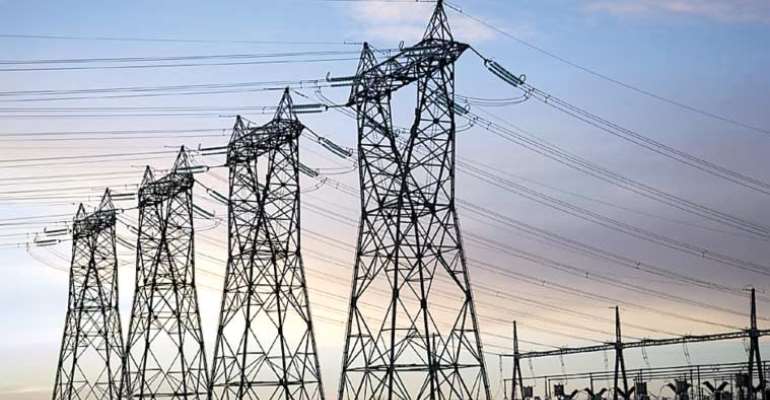Gains on Electricity Safety and Standards

The push for incremental, steady and uninterrupted power supply in Nigeria is proceeding at a faster more coordinated pace than many Nigerians are acknowledging. The preoccupation has been with the (GTD) generation [G], transmission {T} and distribution [D]. But the sector under Babatunde Raji Fashola has raised to the center stage a critical section of the sector, electricity standard and safety of lives and property.
There is a renewed focus beyond the GTD, in enforcement of standard and safety of electrical equipment and installation across the country. Sector operators initially dismissed safety and standard as a major issue but over time the realization has dawned on all operators that the GTD is not enough. Regulating installations and equipment for standard and quality is a serious component of every developed power sector.
That emphasis on safety may appear alien in a developing economy. This may however not be unconnected to the very low power generation, transmission crisis and distribution challenges. Many reason that if we are yet to generate, transmit, and distribute enough megawatts for households, how can we be preoccupied with safety issues. In reality however, safety standards is key to sustainable power supply. Any power sector that underplays standard is likely to be embroiled in systemic human and material losses as a consequence of such neglect.
The Nigerian government realized this early enough; hence the establishment of the Nigerian Electricity Management Services [NEMSA] under the leadership of Engineer Peter O. Ewesor, a leading authority on electrical engineering in the country. Despite hiccups of establishment, NEMSA has taken off successfully and moving rapidly to catch up with any lost ground. Interesting thing is that infrastructure for electricity safety and standard are being set up across the country at a rate that astounds many. Enforcement activities are progressing so swiftly with a touch of professionalism. Certification of electrical contractors has been firmed up, Inspections and monitoring/surveillance of installations is progressing at maximum speed.
The cost of weak electricity safety standard is enormous. We can talk of the human cost. According to Ewesor,” from 2016 to date, we have recorded 366 deaths of largely members of the public and some electricity workers in 321 electrical accidents. While 86.8% of the fatalities occurred among members of the public, 13.2% happened to electricity workers. The electrocutions took place across states, towns and villages. Injuries are even on the higher side “, the NEMSA boss said.
But the agency has taken serious proactive measures. Gencos and Disocs have been sanctioned in many cases. The agency has directed DisCos to disconnect all houses, trading points, under high tension power lines. The agency has written to state governors on advocacy to stop building under high tension lines. Reports indicated that most governments are acting on the agency appeal. As Ewesor himself put it, “we are seriously sanctioning those who flout the law and we are not going to relent”
Much more importantly the agency is strengthening the certification scheme in line with the law, no person irrespective of who he is will be allowed to handle electrical installation works in Nigeria without having that certification. This will checkmate bad electrical installations. On this Ewesor noted that his agency is going “to set up some taskforces to look at some network/system we feel are not safe, and ensure that such networks do not get power supply until fixed”
It is refreshing that meter testing stations are now up and running across the country, certification of electrical contractors is institutionalized and certification of electricity installation is effected as a law. To cap it all, the agency has commenced a Nationwide Technical Monitoring and Evaluation of the primary 33KV feeder lines and associated 33/11KV injection substations with supply source from 330/132/33KV transmission substations.
The exigency of the exercise, the agency affirmed is to identify constraints militating against quick realization of the Federal Government’s policy and efforts for sustainability of the incremental, steady and uninterrupted power supply. This is so as such objective is only possible through the 33KV primary feeder lines to the 33/11KV injection substations and subsequently through the 11KV feeder lines and associated distribution transformers and finally to the consumers to identify the high risk and technical loss points along the 33KV feeder lines.
The Chief Electrical Inspector of the Federation, while on one of the inspections, said “the importance of the exercise cannot be overemphasized in light of the spate of the increasing number of electrical accidents and incidents, power failures/outages at the downstream of the power value chain (power distribution networks) even when there is a huge increase in power generation in the grid system”.
“The exercise will identify high risk defective networks that pose serious threat and danger to operators’ operational staff and the general public and highlight these for immediate attention and correction/rectification by respective DisCos and TCN”, he noted in a recent statement
Overall, the advances recorded within so short a period excite industry watchers. It is thus not surprising that NEMSA came first among all federal agencies and ministries in the ease of doing business ranking just released by the Presidential Committee on the Ease of Doing Business.
From zero scratch to an efficient regulator of standard and electrical safety, NEMSA has proved that Nigeria can get a lot of things right with the right leadership. A president of discipline and integrity combined with a minister of efficiency and progress can only give risea result-oriented regulator.
